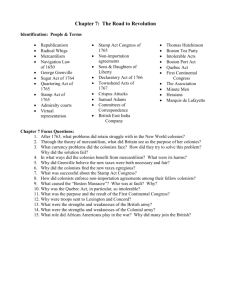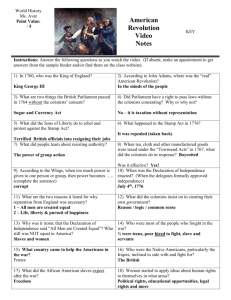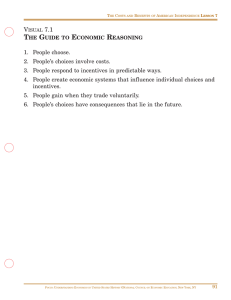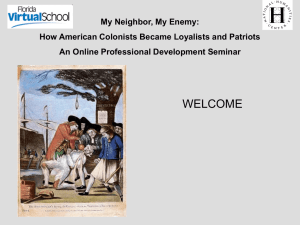United States History
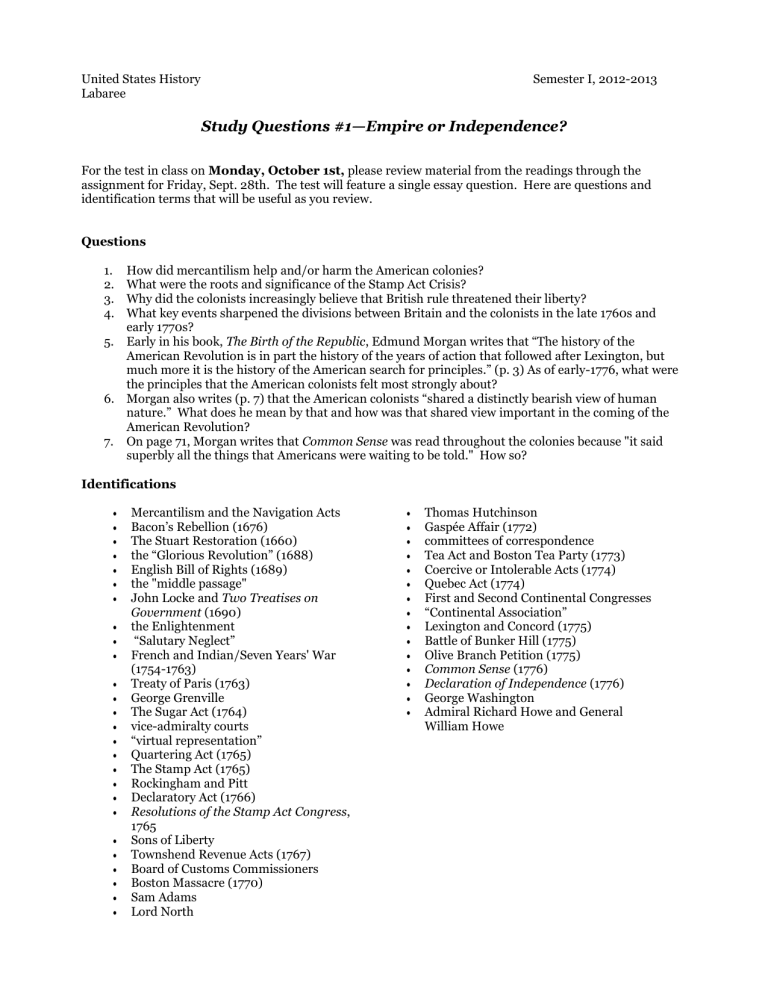
United States History
Labaree
Semester I, 2012-2013
Study Questions #1—Empire or Independence?
For the test in class on Monday, October 1st, please review material from the readings through the assignment for Friday, Sept. 28th. The test will feature a single essay question. Here are questions and identification terms that will be useful as you review.
Questions
1.
How did mercantilism help and/or harm the American colonies?
2.
What were the roots and significance of the Stamp Act Crisis?
3.
Why did the colonists increasingly believe that British rule threatened their liberty?
4.
What key events sharpened the divisions between Britain and the colonists in the late 1760s and early 1770s?
5.
Early in his book, The Birth of the Republic, Edmund Morgan writes that “The history of the
American Revolution is in part the history of the years of action that followed after Lexington, but much more it is the history of the American search for principles.” (p. 3) As of early-1776, what were the principles that the American colonists felt most strongly about?
6.
Morgan also writes (p. 7) that the American colonists “shared a distinctly bearish view of human nature.” What does he mean by that and how was that shared view important in the coming of the
American Revolution?
Identifications
7.
On page 71, Morgan writes that Common Sense was read throughout the colonies because "it said superbly all the things that Americans were waiting to be told." How so?
Mercantilism and the Navigation Acts
Bacon’s Rebellion (1676)
Thomas Hutchinson
Gaspée Affair (1772)
The Stuart Restoration (1660) the “Glorious Revolution” (1688)
English Bill of Rights (1689) the "middle passage"
John Locke and Two Treatises on
Government (1690) the Enlightenment
“Salutary Neglect”
French and Indian/Seven Years' War
(1754-1763)
Treaty of Paris (1763)
George Grenville
The Sugar Act (1764) vice-admiralty courts
“virtual representation”
Quartering Act (1765)
The Stamp Act (1765)
Rockingham and Pitt
Declaratory Act (1766)
Resolutions of the Stamp Act Congress,
committees of correspondence
Tea Act and Boston Tea Party (1773)
Coercive or Intolerable Acts (1774)
Quebec Act (1774)
First and Second Continental Congresses
“Continental Association”
Lexington and Concord (1775)
Battle of Bunker Hill (1775)
Olive Branch Petition (1775)
Common Sense (1776)
Declaration of Independence (1776)
George Washington
Admiral Richard Howe and General
William Howe
1765
Sons of Liberty
Townshend Revenue Acts (1767)
Board of Customs Commissioners
Boston Massacre (1770)
Sam Adams
Lord North

